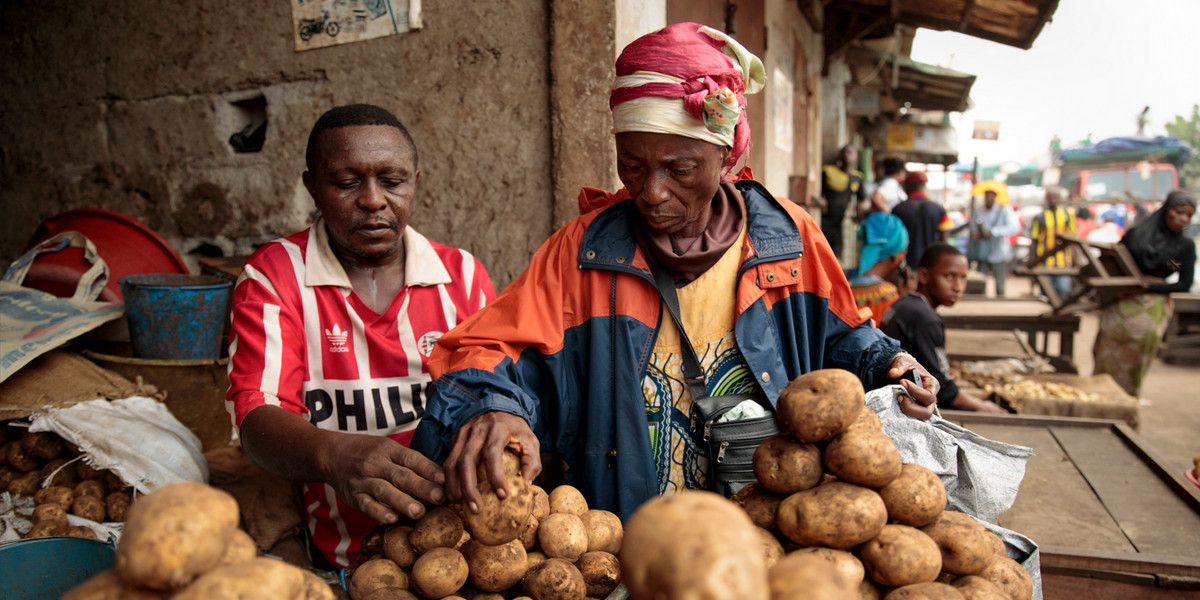Achieving African Food Sovereignty: What Will It Take?
UPDATE 3 July 2025:
“Justice on the table, African and European civil society organisations call for a fair AU-EU agricultural partnership“. Article by Broederlijk Delen. Original text in NL. Automated EN translation.
How the AU-EU Agriculture Partnership can strengthen Food Systems, build Climate Resilience, and advance Nutrition and Gender Equality
Official side event organised by the African and European members of the Civil Society Engagement Platform Working Group on Food Systems during the 6th African Union (AU) – European Union (EU) Agriculture Ministerial Conference. (Rome, 27 June 2025)
Where: FAO, Room “German”
Languages: EN/FR interpretation
OBJECTIVES:
- Analyse structural barriers to food sovereignty and food system resilience and identify ways to overcome them. Addressing structural barriers such as food import dependence, corporate concentration in global markets and power imbalances in value chains, marginalization of small-scale food producers and gender inequality is necessary to advance coherent pathways to equitable and sustainable food systems.
- Promote inclusive governance: by exploring the role of the EU-AU Partnership in aligning policies, mobilizing resources, and integrating civil society and small-scale food producers into all levels of decision-making to support community-led, sustainable food system transitions.
- Highlight the importance of an integrated framework approach to address ecological, nutritional, and socioeconomic challenges in food systems transformation, exemplified by the principles of agroecology (as per the 10 elements defined by the FAO and the 13 principles of HLPE). Showcase lived experiences and ongoing agroecological initiatives across Africa, illustrating how innovative, localized, inclusive, and territorially grounded practices already contribute to sustainability and resilience, and discuss which finance, policies, and private sector support are needed to scale and connect them.
- Link the conversation to global processes: These include the G20 – now under the Presidency of South Africa – and its Global Alliance against Hunger and Poverty, the lead-up to COP30 in Brazil, the 53rd Plenary Session of the Committee on World Food Security (CFS 53), and the recent pledges at the Nutrition for Growth Summit. The event explores how the AU and EU can strategically contribute to global efforts to address inequality, achieve climate justice and the right to food.
CIVIL SOCIETY & PRODUCERS ORGANISATIONS RECOMMENDATIONS TO THE CONFERENCE:
CIDSE contact: Manny Yap, Food and Land Officer (yap(at)cidse.org)
Cover photo: Cameroon – Day in the life of Christine Banlog, market woman. Credit: UN Women/Ryan Brown – CC BY-NC-ND 2.0

